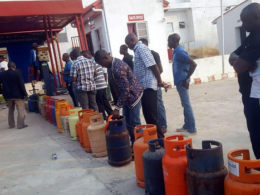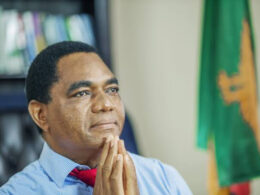In a recent nationwide tour of its power plants, the Managing Director and Chief Executive Officer (MD/CEO) of Niger Delta Power Holding Company (NDPHC), Engr. Jennifer Adighije, emphasized that access to electricity is one of the cardinal agendas of President Bola Tinubu’s administration.
F.C.T., Nigeria- She highlighted the critical role of the NDPHC in advancing the goal of improving electricity distribution across Nigeria, especially to underserved and vulnerable communities.
Engr. Adighije expressed that for President Tinubu, ensuring that Nigerians have access to electricity is not just a privilege but a fundamental right.
This position aligns with the broader national goal of ensuring energy security as a pathway to socioeconomic development. She remarked, “The vision of the new management of NDPHC is to foster energy security for Nigerians by bringing electricity to vulnerable Nigerians in underserved communities. This is why we are here, to ensure that we are building the capacity of all our assets to meet the access gap in the market.”
The NDPHC, being the largest integrated power company in Nigeria, is expected to play a crucial role in bridging the electricity supply gap. This effort is essential in realizing the aims of President Tinubu’s “Renewed Hope Agenda,” which focuses on addressing Nigeria’s critical infrastructure challenges, including electricity.
The MD of NDPHC assured that under her management, the company is committed to achieving significant power generation levels for the country. This, she believes, will not only bolster economic growth but also improve the quality of life for millions of Nigerians.
Energy Security and National Development
During her tour, Engr. Adighije reiterated the Federal Government’s commitment to ensuring energy security, noting that this is a key pillar of President Tinubu’s administration. “There is a clear linkage between adequate power supply and socioeconomic development, and NDPHC is available to help the states in a transparent and legal manner,” she said.
For decades, Nigeria has grappled with unreliable electricity supply, which has stunted the growth of the economy and limited industrial output. Despite possessing an abundance of natural resources, including gas, coal, and hydro potential, Nigeria’s power generation capacity has remained far below demand.
The inefficiencies within the generation and distribution sectors have been the focus of much debate.
A New Approach to Power Generation
Under the leadership of Engr. Adighije, the NDPHC is poised to recalibrate its operations to meet the challenges of the current power landscape. She noted that the company’s new executive management team is determined to reinvigorate the company to regain its pride of place in Nigeria’s electricity industry.
This transformation involves enhancing capacity in existing power plants and ensuring that NDPHC can supply electricity to a wide range of consumers, including business clusters and large users.
She further referenced the directive of the Nigerian Electricity Regulatory Commission (NERC) that urges distribution companies to sign bilateral agreements with generation companies. NDPHC, according to her, is ready to play a leading role in this process, having the capacity and infrastructure to supply electricity under these new agreements.
With a keen focus on transparency and legal frameworks, the NDPHC’s new management team is positioning the company as a vital contributor to Nigeria’s electricity supply chain.
Addressing Operational Challenges
During her visit to one of NDPHC’s key facilities, the Calabar Generation Company, Engr. Adighije received a briefing from the Chief Operating Officer (COO) of the plant, Engr. Bex Ayoade.
He outlined the challenges faced by the company, which include the need for ISO certification to enable the plant to be managed according to international best practices. Achieving this certification is crucial for enhancing operational efficiency and improving service delivery.
Engr. Ayoade also highlighted the need for greater attention to be paid to staff welfare, noting that prompt payment of salaries and the unification of the salary incremental structure across the various workers at the plant would significantly boost morale.
He further called for the decentralization of the procurement of consumables, including tools and spare parts, which he believes would enhance the company’s capacity for efficient service delivery.
These operational challenges are not unique to the Calabar plant but are emblematic of the broader issues faced by power plants across the country. Addressing these internal inefficiencies is crucial for the NDPHC to meet its objectives of improving electricity generation and distribution. Engr. Adighije assured the staff that their concerns would be addressed and that the management was fully committed to repositioning the company for optimal performance.
Tinubu’s Commitment to Energy Security
President Tinubu’s administration has made energy security a key priority in its governance agenda. Engr. Adighije stressed that the President is fully committed to achieving significant improvements in the electricity sector, which is seen as a driving force for the success of the “Renewed Hope Agenda.”
With a population of over 200 million people, Nigeria’s electricity demands are substantial, and meeting these demands requires a coordinated effort from all stakeholders in the power industry.
As the NDPHC embarks on this mission under the leadership of Engr. Adighije, there is hope that the company will not only increase power generation but also ensure that electricity is more widely available to Nigerians, especially those in underserved areas. This initiative is expected to significantly contribute to the country’s overall development, as reliable electricity supply is a key enabler of industrial growth, job creation, and improved living standards.










Join our Channel...